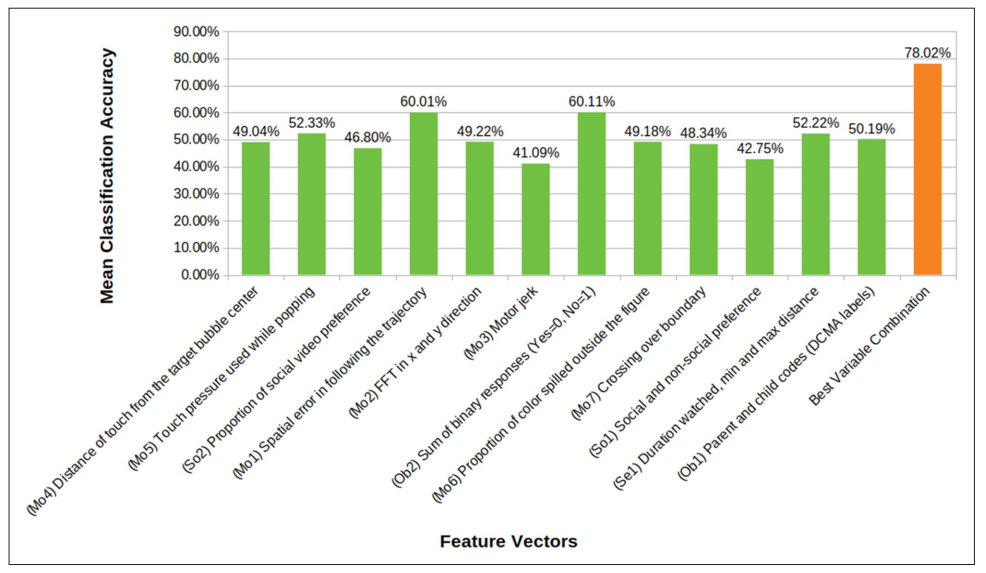
Introduction
Autism, a prevalent neurodevelopmental condition affecting approximately 1% globally, poses challenges in timely diagnosis, particularly in countries like India with around 5 million affected families. Limited awareness and scarce specialist resources hinder early interventions, emphasising the critical need for accessible screening tools. Addressing this, autism screening with advanced technology has seen significant advancements in recent years. An online platform, the START app is a prime example of this progress. It allows non-specialists to assess autism risk in low-resource settings, aiming to bridge the detection gap efficiently. Dubey et al. studied the app’s feasibility, accuracy, and community involvement. By understanding these aspects, we can appreciate the potential of technology in early autism detection and highlight its value in healthcare.
Feasibility and Acceptability
Researchers evaluated the START app’s feasibility through interviews with non-specialist health workers and caregivers in Delhi, India. The app was tested in home settings, ensuring real-world applicability. Non-specialist health workers conducted the interviews in Hindi. This comprehensive approach ensured that the app could function effectively in diverse settings.
Caregivers appreciated the ease of use and the detailed feedback provided. Non-specialist health workers found the training manageable and the app user-friendly. This positive feedback indicated the app’s acceptability and potential for widespread adoption.
The app’s feasibility and acceptability translate into potential cost savings for healthcare systems. By enabling early detection and intervention, the app can reduce the long-term costs associated with untreated autism. This proactive approach aligns with value-based healthcare principles, aiming to improve patient outcomes while managing costs.
Accuracy in Classification
Researchers rigorously tested the START app’s accuracy in classifying participants, as shown in Figure 1, using machine learning methods like XGBoost, logistic regression, and support vector machines, ensuring robust results. The app effectively distinguished between typically developing children, those with autism spectrum conditions, and those with intellectual disabilities. This accuracy is vital for not only early intervention and tailored support, but also for efficient resource allocation. By identifying children needing specific interventions, healthcare providers can allocate resources more effectively, improving health outcomes and optimising healthcare funds.

Community Involvement
Community involvement was a cornerstone of the START app’s development. An autistic researcher participated in regular discussions during the analysis of pilot data. This inclusion ensured that the app was designed with the needs of the autism community in mind.
A dedicated dissemination event was organised for autism community stakeholders in India. Local clinicians, researchers, policymakers, and government organisation members attended. The lead researchers demonstrated the task battery and presented preliminary results in accessible language. This engagement fostered a sense of ownership and trust within the community.
Assessment Procedure
For the assessment of the START app, two high-school graduates were trained as non-specialist health workers through a four-day program, including classroom sessions and supervised field training. Psychology postgraduate research assistants oversaw the data collection, ensuring adherence to research procedures and supporting the health workers, thus maintaining data integrity.
The assessment tools included the Developmental Profile 3 (DP-3) and the INCLEN Diagnostic Tool for Autism Spectrum Disorder (INDT-ASD), administered by the research assistants for accuracy and reliability. This structured procedure ensures high-quality data, essential for evaluating the app’s effectiveness and cost-effectiveness, supporting evidence-based decision-making in value-based healthcare.
Conclusion
The START app represents a significant advancement in autism screening technology. Its feasibility and acceptability in diverse settings, combined with its accuracy in classification, make it a valuable tool. Community involvement in its development and assessment ensures it meets the needs of those it aims to serve. The app aligns with value-based healthcare principles by improving outcomes and managing costs. Furthermore, accurate classification and early intervention can lead to significant cost savings and better resource allocation. As technology continues to evolve, tools like the START app will play a crucial role in early autism detection and intervention.
